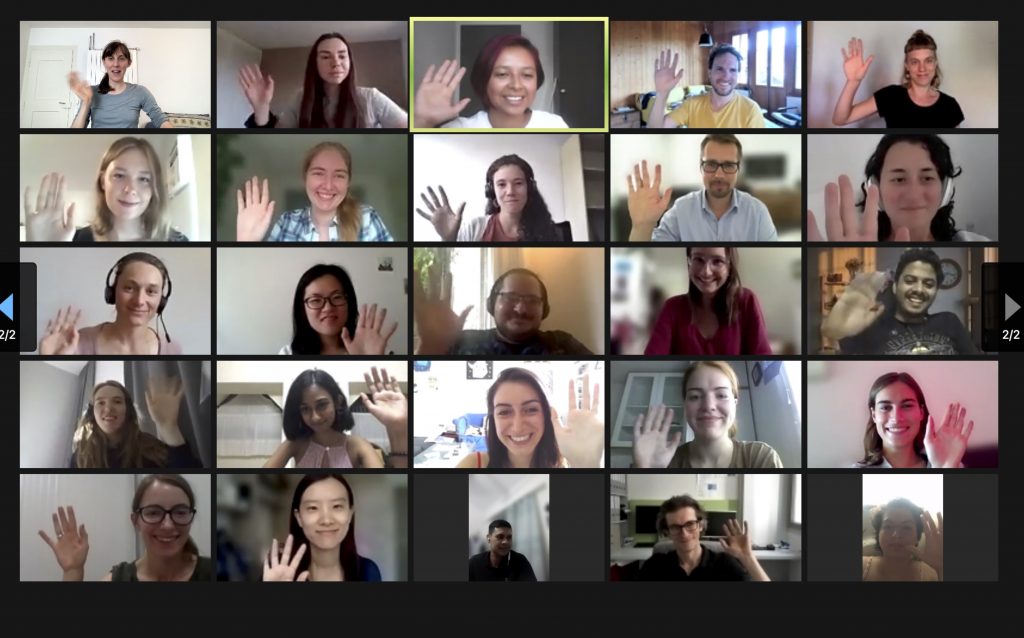One Health summer school: “hidden players in the food chain”
The One Health summer school for Bachelor and Master students gave its participants a glimpse into the cutting-edge research conducted at the IRC One Health. As they learned more about the science, they followed the story of a girl that had cancer and examined which factors could explain her mysterious illness. The central question throughout the class was: how would you as researchers tackle this problem?
The students got a chance to meet leading scientists in their fields, such as Matthias Erb (Institute of Plant Sciences; director of the IRC One Health), Siegfried Hapfelmeier (Institute for Infectious Diseases), Adrien Mestrot and Theresa González de Chávez (Institute of Geography), Josef Gross (Vetsuisse Faculty) and Francesca Ronchi (Department for BioMedical Research). Afterwards, the students could use the theoretical knowledge they had acquired and apply it in a simulation of research along the food chain.
Researching the riddle
The theoretical part of the class was brought to life by visits to the participating research groups, connected through a story developed by the IRC One Health members. Every day, the students received more information about a fictional family of farmers from the Camargue whose child had cancer.
The story introduced the students in a playful way to the many interdisciplinary research topics of One Health. Zoe Bont, scientific coordinator at the IRC One Health, remembered: “introducing a riddle that spanned the entire course worked well to interconnect the different research disciplines and to keep the students engaged. They were always wondering what would happen next.”
“I was challenged to think differently, work hard, be authentic, and understand my role in the food chain.”
Maily González Avilés
The students’ feedback to the One Health summer school was very positive. For instance, Maily González Avilés, a biology student at Yachay Tech University in Ecuador reflected: “in this summer school, I was challenged to think differently, work hard, be authentic, and understand my role in the food chain. I met amazing people, professionally and personally, and I am thankful for all it took to make this experience happen.”
Online summer schools
Because of COVID-19, this year’s summer school had to be converted from an on-site to an online format. The organisers wanted to keep the interactive and personal elements of the class but were aware that it would be difficult to replicate visits to labs and farms in an online setting.
Instead of excursions to food production systems, the students met experts from outside the university, such as Nadja El Benni from Agroscope or Adrian Müller and Anita Frehner from the Research Institute of Organic Agriculture (FIBL). Moreover, the IRC One Health PhD students gave insights into their research projects in interactive breakout sessions.
Even more challenging than reorganising the programme was replicating the social aspects of the previous summer school. The organisers availed themselves of interactive ways to keep the students engaged, such as informal meetings in breakout rooms and a WhatsApp chat group. They also organised online social activities to foster a group feeling, such as games and even a cooking class.

Online courses will never replace the experience of in-person exchanges. Yet for those who cannot afford the time or expense to attend in person, an online class is a viable alternative. They offer an eco-friendlier and less costly way of joining a summer school at the University of Bern. The feedback to this year’s One Health summer school shows that the participants found it a rewarding learning experience and an inspiring social event.
The One Health summer school was organised by the IRC One Health, in collaboration with UniBE International. For more information about the One Health summer school please get in touch with Zoe Bont or Lenka Fehrenbach from UniBE International.
Text: Caspar Bienek
Images: UniBE International
